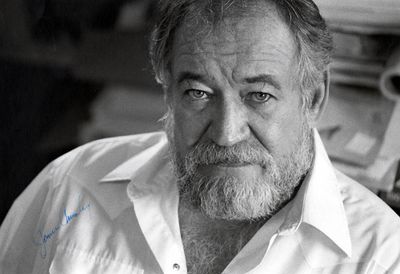Novelist James Crumley dies in Montana hospital

HELENA – Crime novelist James Crumley, whose hardened detectives worked cases in dingy Montana bars and other rough hangouts around Big Sky Country, has died after years of poor health.
Crumley, 68, died Wednesday at a hospital in Missoula, where the former Texan made his home, said William Kittredge, a longtime friend and writer.
Crumley was perhaps best known for “The Last Good Kiss,” which Men’s Journal last year ranked No. 12 among its Top 15 Thrillers of All Time. The book takes readers into the life of C.W. Sughrue, a Montana investigator who works in a topless bar, who is hired to track down an author and ends up searching for a girl missing in San Francisco’s Haight-Ashbury district.
Crumley wrote “hard-boiled detective” books but made them poetic, said Kittredge, who taught in the University of Montana writing program for 29 years. Crumley was on UM’s English faculty soon after he earned a master of fine arts degree at the University of Iowa in 1966.
Although he wrote about violence and coarse living, he was “the least violent man I’ve ever known,” said Russell Chatham, an artist who lives in Livingston, Mont. Their friendship grew after they drove through Mexico together about 25 years ago.
“I don’t think he would swat a fly,” Chatham said. “He’d open a window to let it out.”
Crumley did not participate in the rugged outdoor pursuits that often draw people to Montana and compel them to stay, Chatham said.
“Some of us are out there all the time,” Chatham said. “When he wasn’t writing, he was visiting with friends and having a drink.”
In a 1991 Associated Press interview, Crumley said it was the urban aspects of Missoula – “down by the tracks, the old hotels, the funk you don’t find anymore” – that fascinated him when he got there.
Survivors include Crumley’s wife, Martha Elizabeth.
Kittredge said he knew of no immediate plans for services.